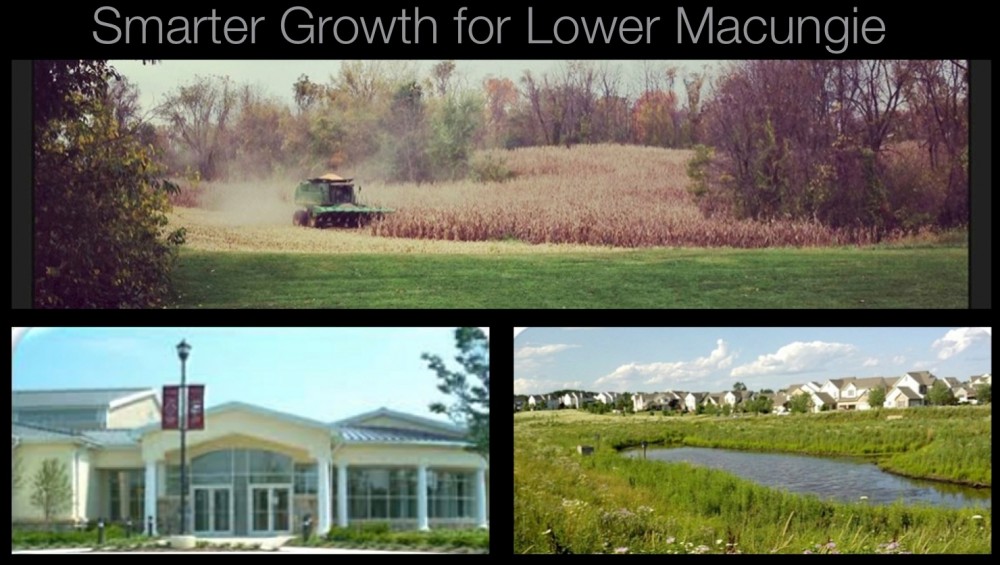Last weekend I blogged about the reasons Lower Macungie was forced to address a budget shortfall this past December. This week I am going to write a little bit about one mechanism I proposed as a candidate and formally in January we can employ to address this issue moving forward.
First I wanted to talk a little about a barrier that prohibits a place like Lower Macungie to deal with the impacts of sprawling commercial and Industrial growth. An issue that will further compound moving forward.
Reality is different land uses have different impacts and liabilities associated. Unfortunately, in PA we have a uniformity clause. Some states do, some don’t. Those that do have varied interpretations. As a consequence of PA’s strict interpretation, residential and commercial property cannot be treated differently for purposes of taxing absent specific provisions providing for exceptions. This is problematic because it prohibits localities to assess taxes based on new impact created. This issue is amplified in a township with a large inventory of distribution warehouses that are already and will continue to create costly liabilities and may someday be the driving force leading us to a local police force or 3rd fire station.
How does this fit into the smart growth philosophy I subscribe to?
I believe greenfield development should pay it’s own way. We must be vigilant against direct and indirect taxpayer subsidies for land use patterns that fail to generate the revenue needed to mitigate new liabilities. Downstream impacts should be also accounted for beyond the 1st lifecycle. Oftentimes as political “feathers in a cap” localities negotiate one time windfalls of up front improvements. Unfortunately, rarely is the math done to see if new revenues are enough to maintain new infrastructure over multiple life-cycles. This is shortsighted.
The solution? A local homestead/farmstead exemption. You may already be familiar with this via state and school district programs. Local government can also take advantage of this program.
A local homestead/farmstead exemption is one provisional exception to the uniformity rule. The program is a way to target property tax relief for primary residences and farmland. By enacting a homestead exclusion program the township can allow reductions in the assessed value of a primary residences or farmland property. This reduces the local property tax burden on these types properties. The homestead exclusion provides a tax reduction to all eligible properties in the taxing jurisdiction. Most importantly this applies to all primary owner occupied residences including, condominiums, single family homes.
There are 7 municipalities in Montgomery County who utilize this program on the local level. One example is Upper Gwynedd. An exclusion allows for real property tax relief of up to one half of the median assessed value of homesteads in the taxing jurisdiction. For example:
- Under LMT’s current .33 mil property tax if you own a home at the township average of around 250,000 dollars your tax liability is 82.50. (Remember, that is local LMT tax not school or County)
- Under a homestead exclusion program that grants a 50% assessment reduction on a primary residence the assessed value (for purposes of tax calculation only) is cut in half to 125,000. Therefore the tax bill is also reduced by half to 41.25.
- Meantime Commercial properties such as a distribution warehouses valued at 24,000,000 pays the full assessed value at .33 mil which would be 7,900.00 dollars.
It’s reality that certain types of land uses like strip malls and distribution warehouses hurt quality of life and command the most resources. This is exacerbated when they are located on sprawling former agriculture fringe parcels such as the Jaindl Spring Creek Property which will unfortunately require bran new roads, infrastructure and improvements. Even portions initially funded by the school district and developer will have to be maintained in perpetuity by the township representing an ongoing liability. To me it’s a matter of fairness. Land uses that cause impacts are the ones that should pay for the impacts.
I have asked the Board of Commissioners to consider a homestead exclusion program as one way to reduce the tax burden for primary residences and farmland within the township. This would also allow us to right size taxes on commercial and industrial entities to make sure they are “paying there own way” so that residents aren’t forced to indirectly subsidize them.
